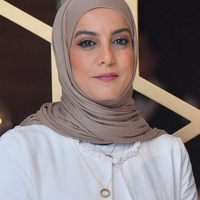Traffic Light System: An innovative approach to combat COVID-19
By Dr Mervat Albufalasa
Since the outbreak of the COVID-19 pandemic, the National Task Force Medical Team led by His Royal Highness Prince Salman bin Hamad Al Khalifa, the Crown Prince, Deputy Supreme Commander and Prime Minister, have exerted strenuous and continuing efforts to combat the coronavirus, taking enormous strides to showcase the success and determination of the government and its people to achieve the desired goals.
The latest announcement of the Traffic Light System that has been adopted by the National Task Force Medical Team signals one of these efforts and confirms the importance of the commitment of all people in the Kingdom of Bahrain, emphasising the significance of national and community partnership.
Interestingly, the Traffic Light System could be related to the self-regulatory theory, which has gained fame within the field of educational psychology. This theory is viewed as a conceptual framework that includes several important learning aspects such as cognitive, motivational and motivational.
Generally speaking, self-regulation theory is a self-directive process that learners implement to transform their mental abilities into task-related skills as defined by Barry J Zimmerman (1989).
It emphasises the individuals’ roles and responsibilities in controlling their behaviours, emotions, feelings, and thoughts to achieve their long-term goals based on their evaluation of the opportunities and constraints. There are many self-regulated models, and each model consists of a number of variables.
Among these models are the works of Barry J Zimmerman (2000) and Albert Bandura (1991), which I find interesting to discuss. Zimmermann’s self-regulation model encompasses three stages: forethought, performance and self-reflection.
If this model is applied to the Traffic Light System, then, in the forethought stage, the individuals will start to analyse the current situation of the coronavirus, set goals to avoid it, and plan how to achieve these goals.
In the performance stage, those individuals will start executing the plan, while monitoring the progression of the situation depending on the statistics published on daily basis by the Ministry of Health.
Based on the statistics, a number of varied self-control strategies will be implemented to engage the individuals cognitively and encourage them to reach the set of goals. Some of these strategies could be the precautionary measures decided by National Task Force Medical Team.
In the final stage, the self-reflection one, the individuals will start to assess the situation and evaluate their performances about their success or failure. Based on the results, positive or negative self-reactions are formed, which will influence their future performances. Bandura’s model of self-regulation incorporates many other aspects/ concepts such as self-monitoring, self-reflection, self-evaluation, self-reaction, self-directedness, self-sanction and self-satisfaction.
In the first phase, self-monitoring is activated by observing the surroundings and one’s performances. This could be applied to observing the coronavirus cases locally and even globally, and based on that individuals will start to monitor their performances as well as others.
In the second phase, self-evaluation and self-reflection are activated. Individuals will start to evaluate their behaviours and whether they conform to the precautionary measures and standards set by the country. Based on their evaluation, the third phase emerges, which includes self-reactions (reacting against the wrong practices), self-sanctions (refraining from wrong behaviours) and self-satisfaction (reaching good results).
This tactic strategy places individuals in the Kingdom of Bahrain at the core of the Traffic Light System, involving them in a vigorous process to activate their inner alarm to observe the situation, evaluate the statistics in the daily report of the COVID-19 cases, and address problem-solving strategies.
This will aid them to regulate their social behaviours to combat the spread of the coronavirus and to decrease the percentage of cases. This is effectively achieved by transiting from high altering levels (i.e., red, orange and yellow) to low altering ones (i.e., green).
The Traffic Light System provides individuals with clear strategies that promote appropriate community behaviours for sustaining the wellbeing of individuals. This system envisages a self-regulated framework that builds a shared understanding of how individuals in the Kingdom of Bahrain should act to support the countless efforts of the government to maintain the safety and wellbeing of its people.
Dr Mervat Albufalasa, Assistant Professor of Applied Linguistics University of Bahrain
Related Posts


